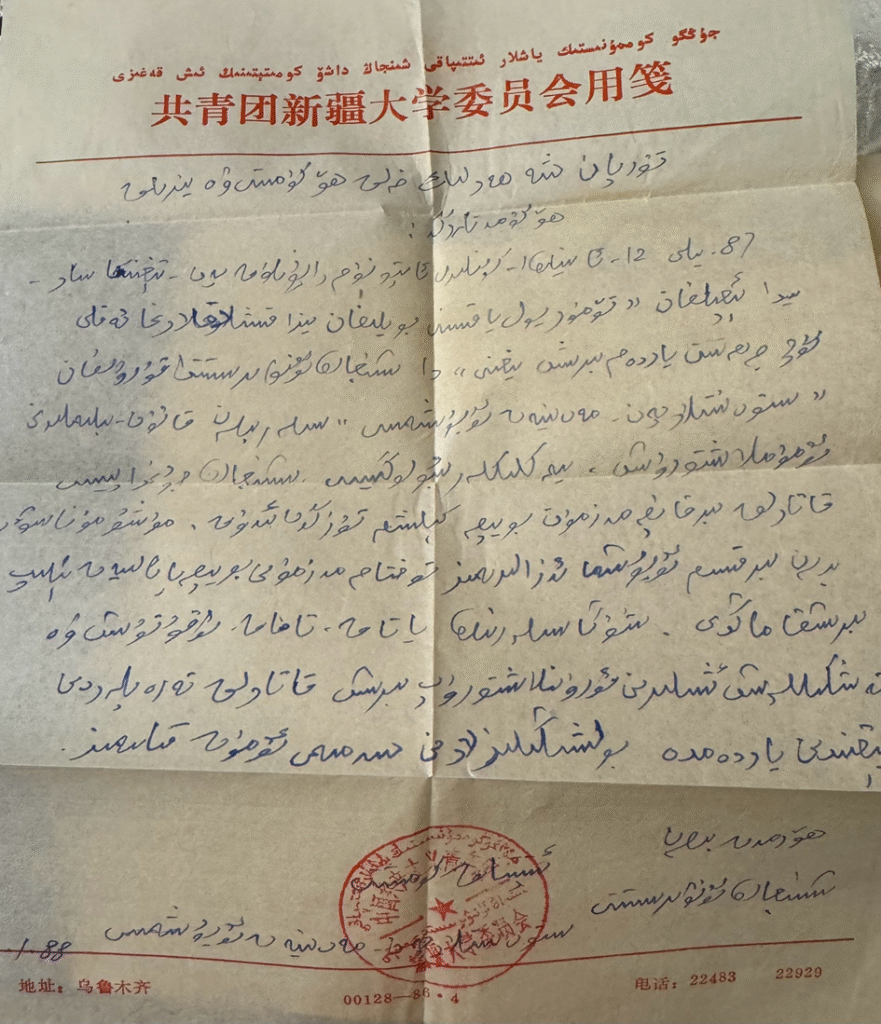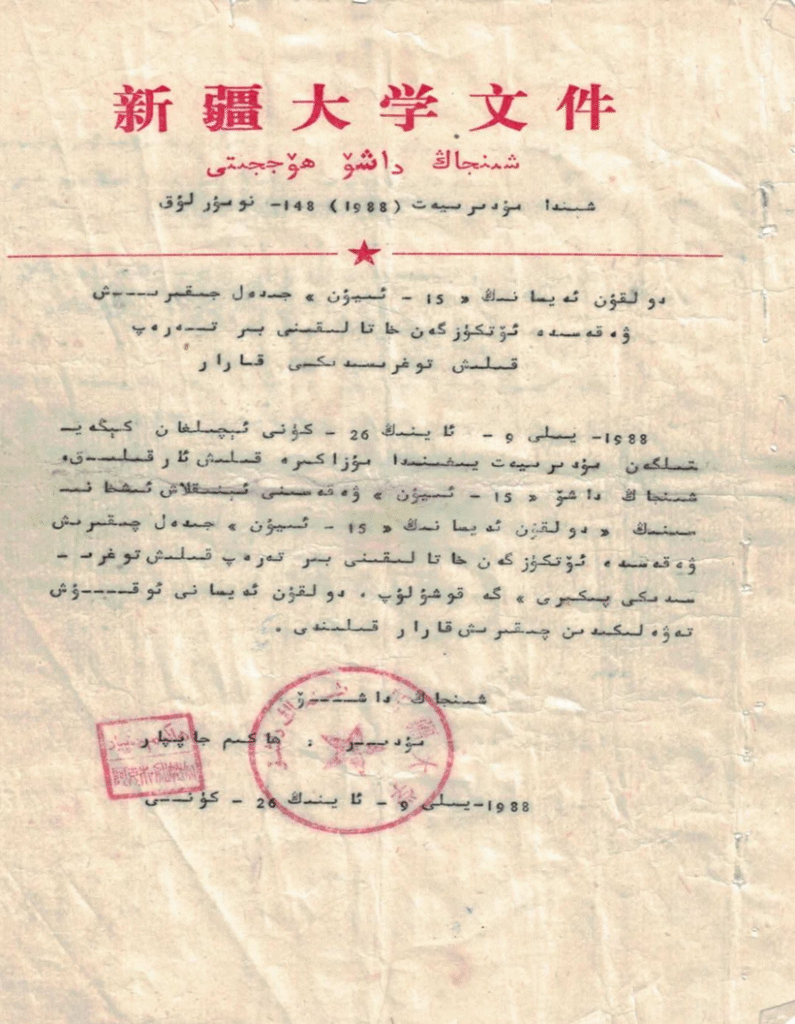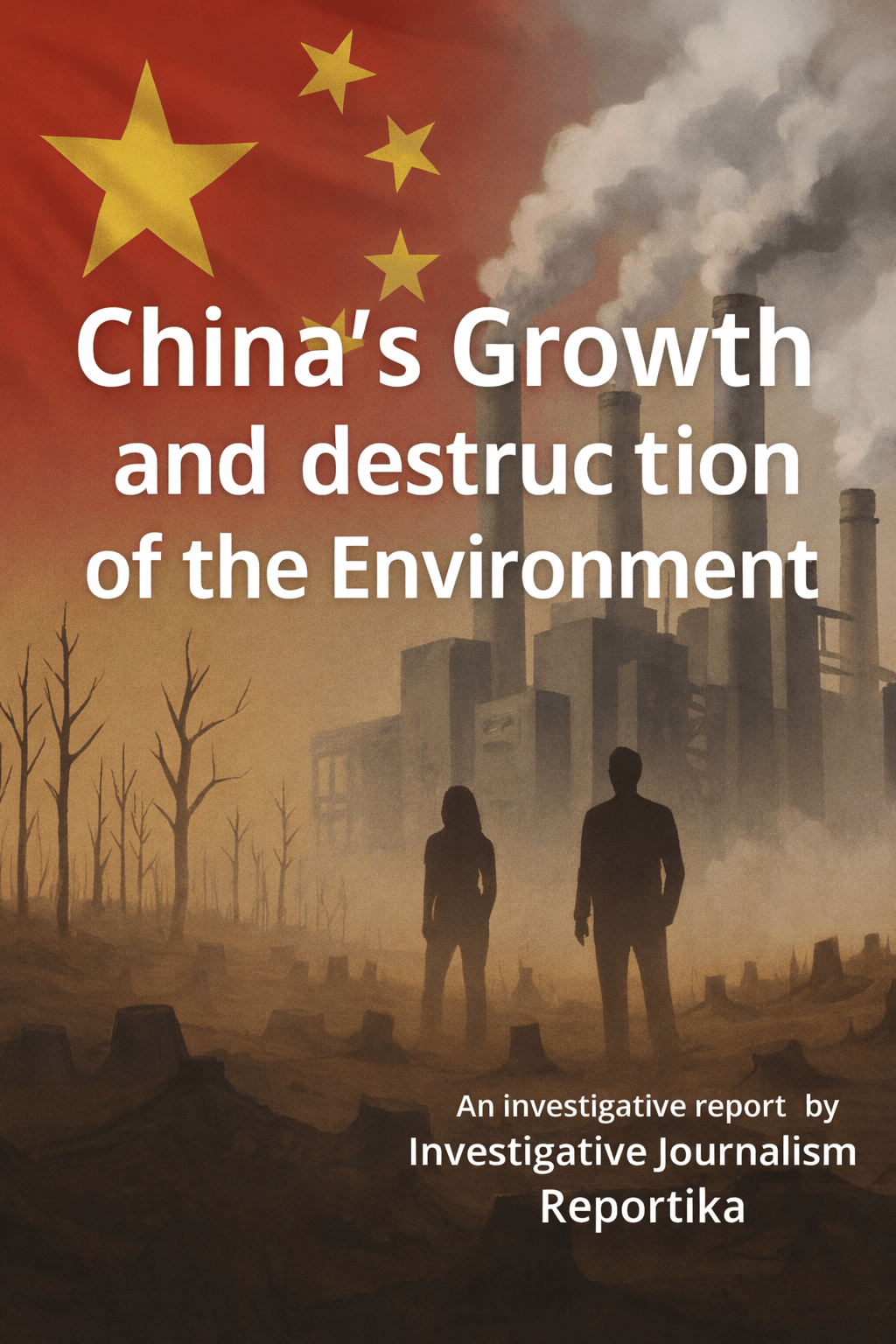The Day That Sparked the Flame of Freedom
Op-ed by Dolkun Isa
June 15 marks a significant day—the 37th anniversary of the 1988 Student Demonstration, one of the most unforgettable acts of resistance in Uyghur history. What happened that day was not just a student movement, but a turning point in the Uyghur people’s struggle for democracy, human rights, and freedom in East Turkestan.
At the time, I was just a university student in my early twenties. Leading this movement was not just a duty—it was an honor. Even today, I remember the excitement and the pain of those days as if they happened yesterday. With this message, I want to honor the spirit of that day, pay tribute to my fellow activists, to the leaders we’ve lost, and to the courage of the Uyghur people.
June 15, 1988: The Day the Students Broke the Silence

The spark that ignited the protest came after years of systematic discrimination and humiliation of Uyghur students. On May 5, 1988, racist and degrading graffiti was scrawled in the restroom of the Physics Department at Xinjiang University. The words included vile slogans such as:
“Let’s make Uyghur men slaves, and turn their girls into prostitutes.”
Despite the disgraceful nature of this incident, the university administration and the authorities remained silent. Uyghur students tried to raise their concerns through legal and official channels, submitting petitions and requesting dialogue. All attempts were either rejected or ignored. It became clear—silence was no longer an option.
On the morning of June 15, thousands of students gathered at Xinjiang University to hold a “Rally Against Ethnic Discrimination.” Then, they poured into the streets with banners in hand and slogans on their lips:
“We protest ethnic discrimination!”, “Long live human rights!”, “We need democracy”, “We need equal rights”, “No to China’s policies of enslavement!”
The streets were filled not only with the anger of the youth, but with the support of the people. Some wept as they embraced the young protestors. This was more than a protest—it was a struggle for dignity.
The Formation of the Student Science & Culture Union
This movement was not spontaneous. In 1987, Uyghur students at the Xinjiang university had already formed an organized structure: the Student Science and Culture Union. I served as its president. My deputies were Rushan Abbas and the late Ablimit Memet. Our general secretary was Waris Ababekri, who tragically died in a Chinese internment camp in November 2019.

Our union was not only ideological but practical in its work. We sent volunteer teachers to underserved areas, organized cultural and legal literacy courses, held photo exhibitions, and promoted patriotic education through plays, lectures, and artistic events. We began a movement to nourish the Uyghur people’s consciousness and spirit.
China’s Repression: Forced Silence
The June 15 protest shook the Chinese authorities. Though it was suppressed, its impact lasted. The event was labeled a “June 15 Incident.” As student leaders, we were targeted for investigation. Hundreds of high level officials, police officers monitored, interrogated, and harassed us. Every step we took was watched. I was placed under house arrest.
After four months of questioning, Waris Ababekri and I were expelled from university. Others were sent to rural areas after graduation and denied jobs. Many are still under state surveillance today. Waris lost his life in a camp. I was able to escape abroad in 1994 and gained freedom.


Today: Facing an Ongoing Genocide
What began as discrimination in the 1980s has now escalated into a full-scale genocide. Millions of Uyghurs and other Turkic peoples are imprisoned in China’s concentration camps, forced labor centers, and cities turned into open-air prisons. Mosques have been demolished, Quran schools outlawed, and families ripped apart. Our culture and identity are being systematically erased.
This is not mere assimilation—it is genocide.
Just as we raised our voices in 1988, we must raise them again today. The silence of the world only fuels oppression. To remain silent is to be complicit in the crime.
Lessons for Today and Tomorrow
June 15, 1988 is not just a memory—it is a roadmap for today and for the future. That day, the Uyghur youth stood tall for freedom. They defied humiliation and refused to bow to repression. That spirit still lives within our people today. Because freedom is not a privilege—it is a fundamental human right. Demanding it is not a crime, but a moral duty.
This demonstration remains one of the most significant democratic uprisings in Uyghur history. It is our duty to pass on this legacy of resistance to the next generation. Because to remember is to resist. If we forget, we repeat history. If we remember, we rise again.
June 15 is not just a date—it is the name of honor, courage, and resistance.
I remember with deep respect all those who joined, supported, and gave their lives in this struggle.
The torch of freedom they lit will one day illuminate the skies of East Turkestan.
15.06.2025 Munich – Germany




